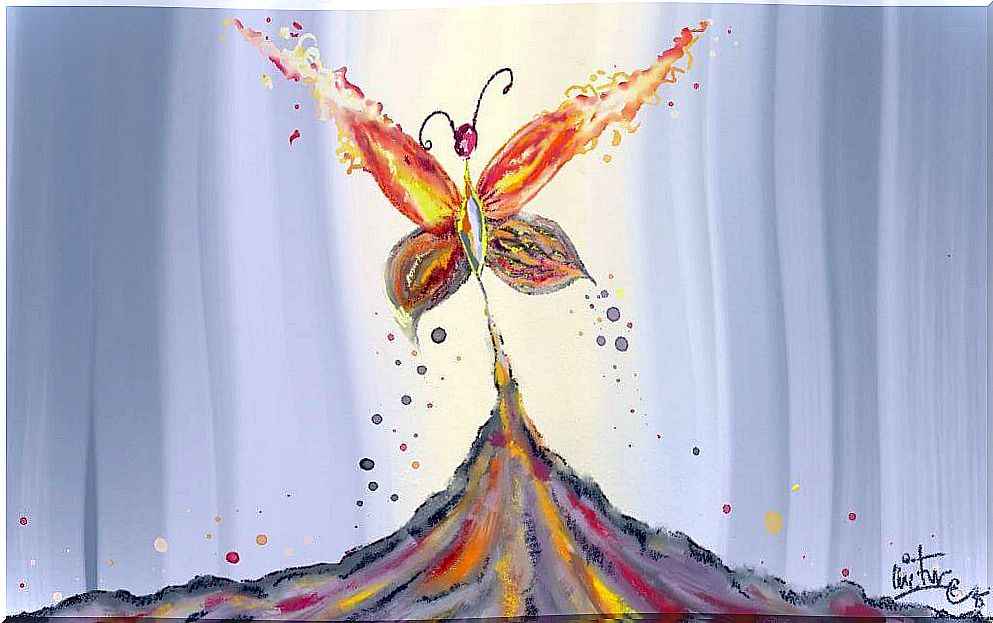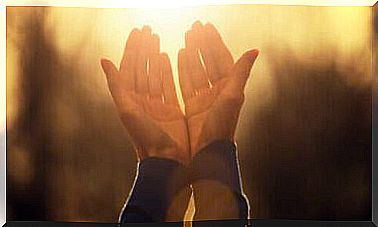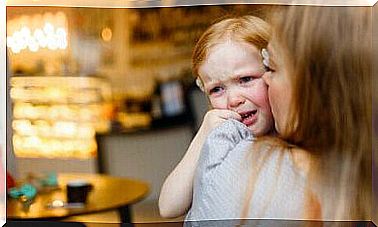Heroes Or Victims: Two Ways To Deal With Personal Crises

To deal with personal crises, we can choose to do nothing and be like a leaf that lets itself be carried away by the current. Or, on the other hand, to be that stone that, after having touched the bottom, takes advantage of the river’s strength to return to the surface, shiny and beautiful. It is clear that no one is unscathed from these trips, but we will become heroes of our own stories.
When we talk about personal crises there is something that is almost always present: a loss. Sometimes we go through crossroads where we are forced to assume that there is an aspect of our life that must be left behind, and that we are no longer the same as yesterday. Other times, we lose something or someone or unforeseen events occur that force us to assume changes, start fights and invest personal resources so that we don’t lose everything, so that we don’t let ourselves be carried away by these unfair blows of fate.
All of this encourages us to conclude with an almost obvious fact. In the face of adversity, we have two options, be quiet or move forward, be eternal victims of our own circumstances or rise up as deserving of new opportunities. It should be said, however, that it is not easy: no one has ever taught us how to be heroes, nor what kind of strategies we should apply to overcome these obstacles that often put us in a position of powerlessness…

Personal crises: the loss of our precious balance
Losing a job, facing a separation, seeing in the mirror that we’re not as young as we used to be, discovering that the people we care about don’t give back in the same way… These are all “almost” normal events in our life cycles. However, as common as they are, we will never get used to these circumstances.
The reason for this is due to a very concrete fact: happiness is balance, a feeling of security and that everything is under our control. Therefore, any change, no matter how small, is interpreted as a threat, an unforeseen event to which we do not know very well how to respond.
Recognizing our lack of protection is actually a good place to start. Experiencing bewilderment after the onslaught of disappointment, loss or deception inevitably forces us to be quiet to reflect. In fact, the very word “crisis” comes from the Greek “Krisis”, and means “I decide”, “I judge” or “I separate”. It is a direct invitation to be aware and to add clear personal responsibility for our circumstances to decide what to do.

On the other hand, psychologists Richard Tedeschi and Larry Calhoun explain in their book “
Almost without knowing how, we discover that we have new talents, that we are stronger than we initially thought, and that in this fight for survival we are becoming anonymous heroes. What at first seemed an almost intolerable difficulty or even impossible to assume, becomes a learning experience.
We all go through them, but we all have the resources to deal with personal crises
There are many types of crises : developmental crises associated with different stages of our lives, situational crises such as those linked to accidents and natural disasters, existential crises related to our purposes or values… They all have two points in common: affect our mood and our behavior.
It is estimated that almost 80% of human beings suffer at some point one or several personal crises. We will therefore be, in greater or lesser numbers, victims of fate, circumstances or facts that we ourselves have provoked. However, we all have the resources to deal with personal crises, to move from this state of fragility and emotional instability to this other point, where we can glimpse new alternatives with which we will regain the reins, balance, and reach a new cycle of maturation.

Gilbert Ross, a philosopher specializing in personal growth, tells us that all adversity is, in a sense, a form of natural selection. Only those who take up the challenge are able to change their skin, strengthen their self-esteem, overcome their fears and assume a flexible attitude to make progress.
Crises, like it or not, are increasingly common in our society. We live in times of constant change and uncertainty; what is certain today, tomorrow may not be, what defines us now may be lost tomorrow… Being prepared for change is an invaluable psychological resource, a force engine that will allow us to survive knowing that behind every crisis there is a opportunity.









